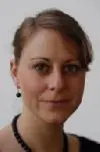Trans-disciplinary research and development cooperation
February 26, 2014.
Global problems such as climate change, food security, environmental transformation processes and depletion of natural resources require integrated approaches by science, practice and policy. (Experts call conducting research while consulting and involving practice and policy “trans-disciplinary”). This basic assumption was expressed by the key note speaker, Imme Scholz (vice president of GDI/DIE) on the one-day conference “Trans-disciplinary sustainability research and development cooperation” taking place at ZEF on February 25.
Bridging gaps
On this occasion, researchers met with representatives of ministries and practitioners in the field of development policy and cooperation. The questions that were tackled by the around 50 participants in a combination of talks, panel discussions and working groups included “how can science and development cooperation actually work together? What lessons have been learned from best practices and what are the challenges ahead?
A world apart?
It became clear that each world has its own requirements, constraints and rules. Scientists need time to produce results that meet scientific standards, and they have to publish to be successful and therewith obtain further funding. Practitioners and policy-makers often have short time lines and deal with affected people as well local decision-makers in a more immediate way.
Trans-disciplinary development research in theory and practiceAnna Schwachula, a doctoral student at ZEF, who is conducting research on science policy for development, focusing on the German Federal Ministry of Education and Research (BMBF) said in her talk that there seems to be a lack of overarching strategy for development research on policy level. Her research also assessed structural constraints for close cooperation between researchers and practitioners. Major challenges are involving local stakeholders, partners and government representatives at the early stage of agenda-setting, and bridging the gaps between research and development practice.
Outlook
At the end of the day, Anna Hornidge, a senior researcher at ZEF summarized the discussions of the day. The participants agreed that personal as well as institutional communication in a more standardized and structured way is key to setting up, improving, expanding and funding trans-disciplinary research.
Exhibition
After the conference a exhibition was shown on "Challenge Yasuní: Development research and Buen Vivir", which was opened by the Ambassador of Ecuador. Find more information about the exhibition here.
The conference was organized by "Forschungswende", ZEF, Brot für die Welt and die Deutsche UNESCO Kommission. Funds were received from Umwelt Bundes Amt and BMU.
You can find more information on the conference, including the agenda, here.


